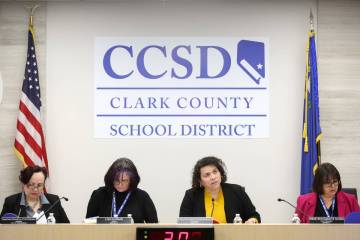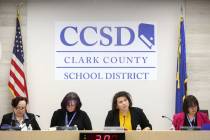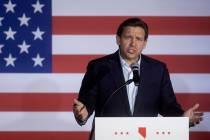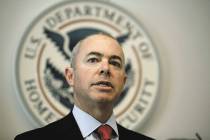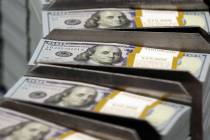EDITORIAL: Utah offers lessons on coronavirus response
During the coronavirus crisis, Gov. Steve Sisolak often took his cues on school closures, business shutdowns and other restrictions from his counterpart in California. He should have paid more attention to our eastern neighbor, according to a new national study.
Last week, the National Bureau of Economic Statistics published a working paper comparing state responses to the virus. It was written by Casey B. Mulligan, a University of Chicago economist; Steven Moore of the Heritage Foundation; and Phil Kerpen of the Committee to Unleash Prosperity. The authors evaluated each state on three factors: health outcomes, economic performance in the face of the virus and education disruptions.
New Jersey, the District of Columbia and New York brought up the rear. California ranked fifth from the bottom. Nevada came in three spots below that at eighth worst. On the other end of the scale, Utah, Nebraska and Vermont finished one, two and three, with Florida — whose governor was incessantly derided as the leader of a death cult by the “zero-COVID” crowd on the left — slotted in sixth.
Surprisingly, Nevada didn’t score badly in the economic component because the study adjusted for its reliance on the tourism and hospitality industry. But the state fared poorly in the education and mortality components because a high number of students were subjected to remote learning over a significant period and because its virus fatality rates when adjusted for age and population health were high.
Of note, the study concludes that, in the continental United States, “there is no apparent relationship between reduced economic activity during the pandemic and our composite mortality measure.” The authors observed that the “correlation between health and economy scores is essentially zero, which suggests that states that withdrew the most from economic activity did not significantly improve health.”
As for the ongoing debate about the relationship between political decisions and virus deaths, the analysis concludes that, “There is no clear pattern in which states had high and low mortality.”
California, with its often draconian policies, ranked 27th in mortality, while Florida, which took a much-less-restrictive approach was 28th. Utah, meanwhile, was ranked eighth in mortality, fourth in economic performance and fifth in schooling outcomes.
The key takeaway is that more restrictive government policies — on schools and the economy — did not result in noticeably better health outcomes and often imposed devastating costs. As we learn to live with the virus, this must be a long-term lesson for elected officials in Nevada and across the country.





